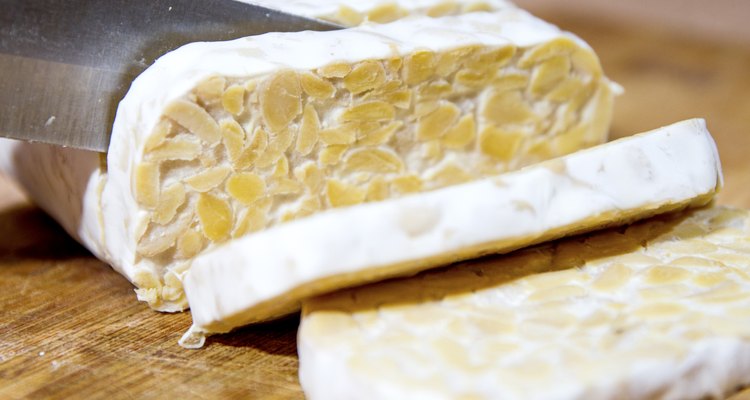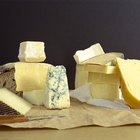
banarfilardhi/iStock/Getty Images
Probiotics are healthy or "friendly" bacteria that help your digestive system function optimally, increase your immunity to infections, and help keep asthma, allergies and other inflammatory responses in check. Electrolytes are water-soluble charged ions that the body needs in certain concentrations to carry out important chemical reactions. They include potassium, sodium, calcium and magnesium. While there are not many foods that combine high levels of probiotics and electrolytes, many high-electrolyte foods also contain "prebiotics," which are elements that make the body's conditions favorable to the growth of healthy bacteria.
Dairy Products
Yogurt is perhaps the most well-known source of probiotics. Other dairy products containing healthy bacteria are buttermilk and kefir.
Fermented Cabbage
This includes sauerkraut and kim chi. Canned varieties, however, are usually pasteurized to preserve shelf life; pasteurization kills the friendly bacteria along with the harmful bacteria.
Fermented Soy Products
Soy products containing probiotics include tempeh and miso. Be aware that many soy products are not produced through fermentation and lack probiotic benefits.
Foods with Added Probiotics
As the benefits of probiotics have been discovered, manufacturers have added probiotics to many foods. Juices, chocolate bars, breakfast cereal and granola can all be found in probiotic varieties. Probiotic dietary supplements are also available. However, added probiotics and supplements are of questionable efficacy compared to foods that naturally contain them.
Spinach and Other Leafy Greens
Spinach is an excellent source of all types of electrolytes. Other greens such as kale, bok choy, swiss chard, and beet greens are also good sources. Leafy greens also contain prebiotics to help provide an optimal environment for the probiotics in your diet.
Nuts, Beans and Seeds
Lima beans, red beans, white beans, pinto beans, sunflower seeds, peanuts, almonds and hazelnuts are all high on the list of electrolyte-packed foods. Eat them in the most unprocessed form possible to obtain maximum nutritional benefit. Many types of beans, seeds and whole grains are also good prebiotic sources.
Bananas
Bananas are infamous for being an excellent source of potassium. Other potassium-rich fruits and veggies include oranges, artichokes, acorn squash and tomatoes.
Related Articles

A List of Foods Containing Microbes

How to Reduce Acne Inflammation

How to Freeze Tzatziki

How to Get Rid of Skunk Smell With ...

L-Lysine for Hair Growth

Ingredients in Hand Soap

What Foods Provide Calcium D-Glucarate?

Benzoyl Peroxide-Free Acne Products

Composition of Monosodium Glutamate

Nutrition Information on Blueberries

Pros & Cons of Parabens

Nutritional Values of Cheese

How to Make a Lip Mask for Extremely ...

Can Age Spots Be Reversed?

Fruit & Water Diet

Foods That Are Natural Antibiotics

Vitamins for Mental Alertness

Skin Care Products That Contain ...

What Is the Nutritional Value of Wheat?

How to Improve Jar Spaghetti Sauce With ...
References
Writer Bio
Andrea Johnson is a certified personal trainer and lifestyle and weight management consultant through the American Council on Exercise (ACE). She has a B.A. in biology from the University of St. Thomas, St. Paul, Minn., and also a J.D. from the University of Minnesota. She began writing for various online publications after four years working as a personal trainer and wellness coach.
Photo Credits
banarfilardhi/iStock/Getty Images